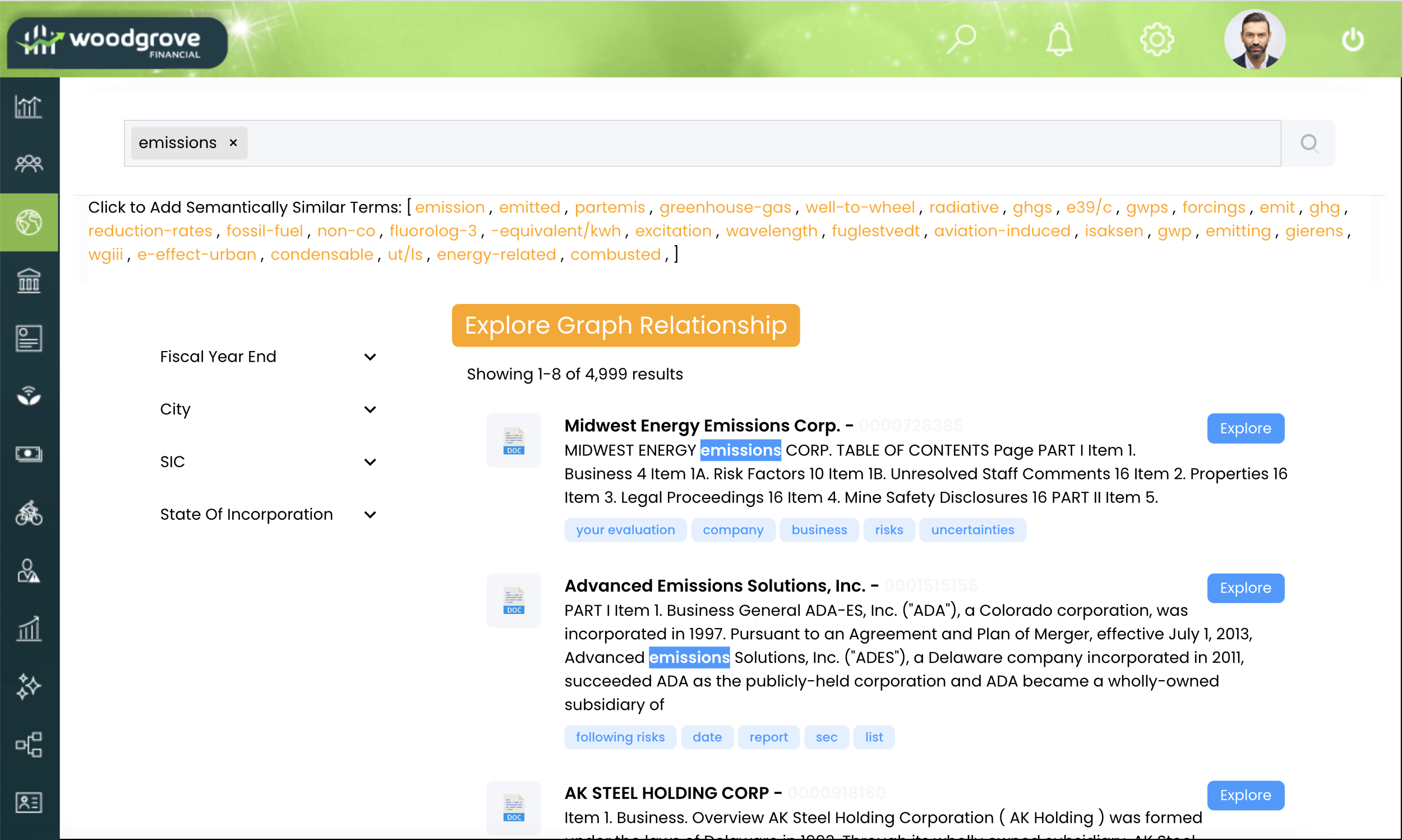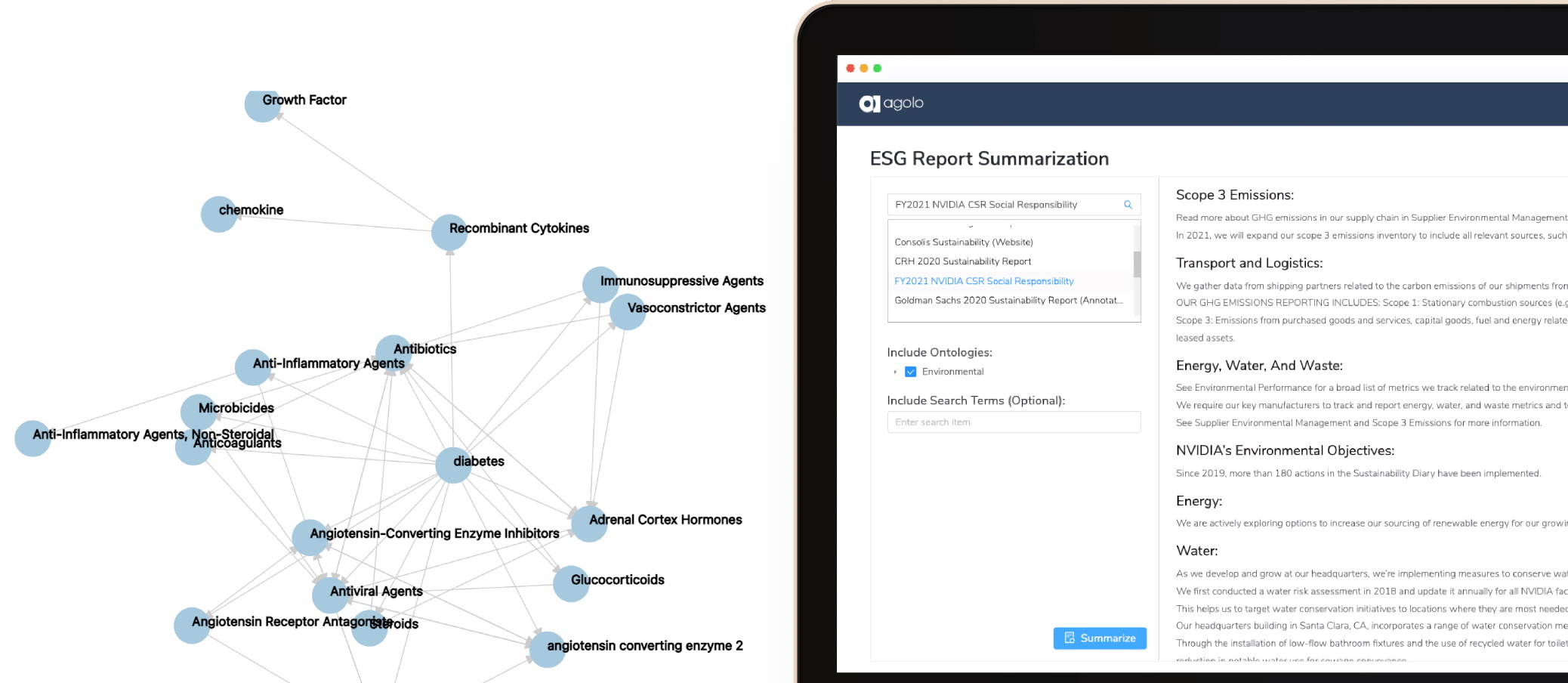Search is hard, but even the decent tools developed by Google, Microsoft and others can’t seem to get it right when it comes to navigating the thousands of documents and ideas trapped in enterprise and government databases. Agolo is making a specialty of it, however, using intelligent summaries to get a foot in the door with feds — and raise a couple million to keep building, too.
We last talked with Agolo in the summer of 2019, or as I think of it, last summer. At the time, the company had built a powerful summary engine that could take documents, articles and other long-form content and produce shorter versions that kept the critical points intact. This type of tech is valuable in a lot of ways, but the one Agolo found most immediately applicable is in search.
The problem with search is that the engines that do it are both smart and dumb. They’re smart about finding threads of relevance and ordering things using those metrics (when they’re allowed to), but dumb in that they aren’t very good at context or extraction. By that I mean that they may or may not be good at pulling out, for example, the author of a page or paper because formatting differs widely — and without the ability to connect those pieces of information these engines don’t really know what’s important.
Part of summarizing a document, however, is understanding what about it is important — otherwise how do you know which parts to keep or throw away? This information, it turns out, is crucial for making searches of unstructured or miscellaneous data effective. Docugami focused on the process of turning documents into data, and Agolo is using a related approach to let users find the needle in the corporate document haystack.
The company found a good fit for its technology in the early days of the pandemic, when the Office of Science and Tech Policy was looking for a better way to organize the swiftly accumulating data around COVID-19. Searching for authors and substances is all well and good, but people needed something a bit smarter than the usual database indexers.
Agolo co-founder and CEO Sage Wohns gave the example of searching for ibuprofen. Any ordinary search engine only understands ibuprofen as a term people generally search for in order to learn more about the medicine, and that’s the way it’s reflected in the index. Even if you deploy that search tech on a domain-specific corpus, like research papers, it doesn’t magically gain better understanding. But a medical researcher searching through pandemic-related papers for ibuprofen already knows what it is — what they need is an ordered presentation of how ibuprofen appears in the literature, what other drugs and effects it is most tightly correlated with, what institutions and authors are associated with studying it.
“We helped with the problem of getting the right info into people’s hands,” said Wohns. And an early version of the company’s summary tech was used in combination with the OSTP’s existing search stack to make the results better. Not only does it return things that should be more relevant, but it surfaces the reasoning for that relevance, showing (if you ask it) a representation of the graph and nodes a query and related items are part of.
Now they’re on to similar projects for the federal government, which is sitting on tons of reports and data but like any large organization has trouble sorting through it all.
“In the two years since, we’ve re-engineered the summarizer to handle longer documents (often hundreds of pages), and optimized the knowledge graph creator to scale to handle millions of documents within a single graph,” wrote co-founder and CTO Mohamed AlTantawy in an email to TechCrunch.
Like any self-respecting enterprise micromodel, the systems Agolo deploys tailor themselves to the data set provided by the client.
Because Agolo doesn’t make its own search solution per se, it partners with the likes of Microsoft and Google, AlTantawy said: “We’re working with them both on their enterprise offerings, deploying our solutions in their client implementations. At Microsoft, we’re integrated into 4 sales kits, the only non-Microsoft technology included here across Financial Services, Federal, Healthcare and Retail.”
So a big government organization comes to the enterprise search provider to put its documents in order, and the enterprise search provider comes to Agolo to make sure the documents are indexed and understood in a real way.
“We are directly under contract with two U.S. government clients today, with a few others pending contract,” said Wohns. “In some of those, we are being integrated with other software (from Microsoft and others) but the licenses are directly with Agolo. That aligns to our business model, where we have both direct and indirect channels.”
The Air Force and Defense Department are among those clients, though Wohns could not be more specific. They’re also working on a system for analyzing and ordering Environmental, Social and Governance reports from large companies — another category of documents that’s easy enough to read one or three of, but quickly becomes cumbrous as you look at 100 competing ESG statements from potential partners or investments.
The company’s A round was just closed, led by Lytical Ventures, plus returning investors Microsoft M12, Google Ventures, Tensility Venture Partners, Ridgeline Partners and Thomson Reuters. The company has raised over $18 million in total to date.
The money will be used to staff up in sales and marketing in particular, plus the product and engineering needed to continue to work with its existing clients. It should be announcing some big ones this year, so hopefully our readers in the federal government will be able to find things a little easier then.
from TechCrunch https://ift.tt/Vfveto2
via Tech Geeky Hub




No comments:
Post a Comment